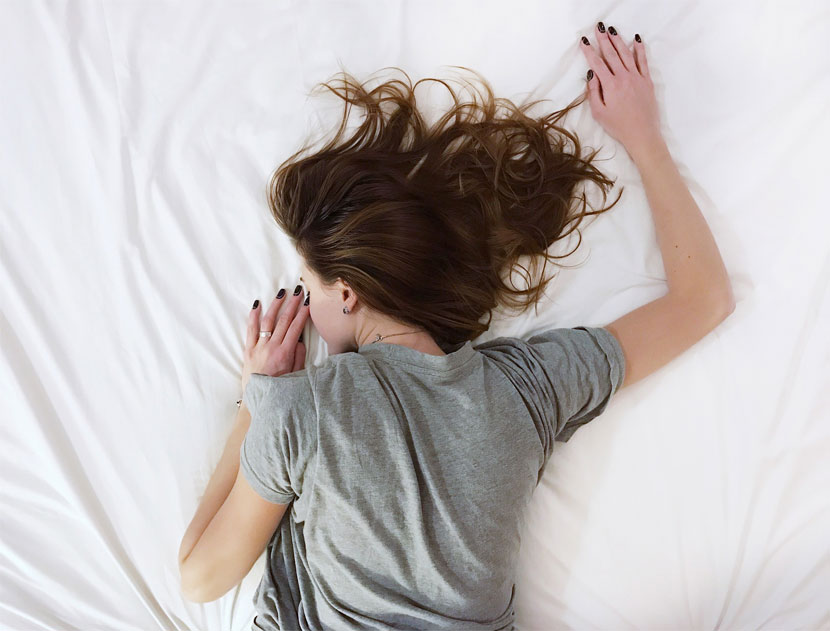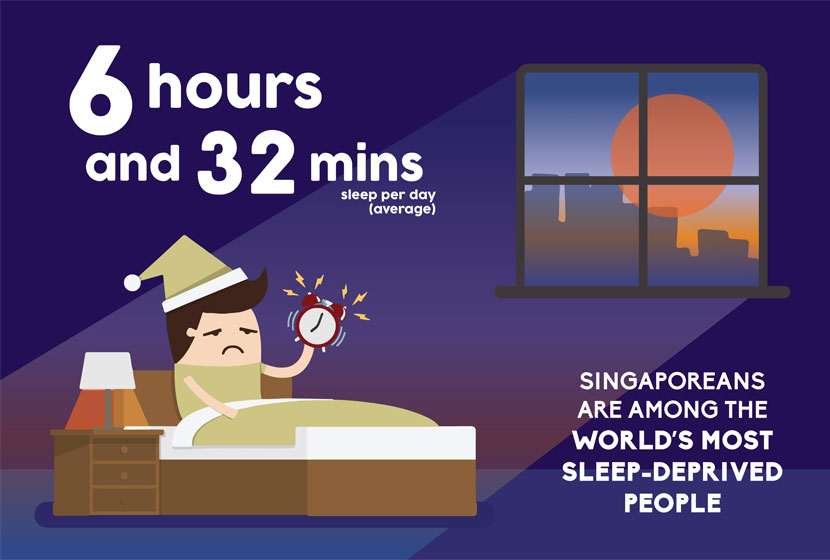During the school term, Tristan Chong often goes to bed early. 7 am, that is.
The 20-year-old Ngee Ann Polytechnic student pulls all-nighters regularly to complete his school work.
On days when he has to attend classes in the morning, he’d be up by 8 am. 1 hour of sleep is all he could afford.
“I don’t choose to sleep if I need to stay up,” said the Product Design & Innovation student, adding that he feels compelled to finish his assignments before allowing himself to rest.
While Tristan is an extreme example, many other young Singaporeans are also deep in sleep debt by global standards.
A 2015 study found that over half of the students from top secondary schools and junior colleges in Singapore sleep less than 6 hours a night. The study was conducted by the Center for Cognitive Neuroscience, Neuroscience and Behavioral Disorders Program at Duke-NUS Medical School.
“I think sleep deprivation is quite common,” said Benita Leong, 19, a former student from Anglo Chinese Junior College (ACJC ).
“But the scary thing is, instead of rectifying the issue, it’s considered normal.”

She added that some of her peers would even compare their sleep schedules and wear their lack of sleep like a badge of honor.
Diagnosed with insomnia at the age of 13, Benita sleeps an average of 3 hours a day. Sometimes, she can’t even manage a shut eye, making it difficult for her to stay focused.
According to a 2014 study by Jawbone, a company selling fitness trackers, Singaporeans are among the world’s most sleep-deprived people, with an average of 6 hours and 32 minutes of sleep a day.

While sleep needs vary with age, most adults need 7 to 9 hours of sleep a day, according to the National Sleep Foundation.
“In our increasingly connected world, there are activities round the clock and with constant distraction from the Internet, it should come as no surprise that a typical working adult or teenager will not clock the obligatory 7 hours of sleep,” said Dr Chong Yaw Khian, senior consultant with the Department of Otorhinolaryngology at Tan Tock Seng Hospital (TTSH).
Effects of sleep deprivation
Insufficient sleep can cost us our health.
“In terms of the short-term effects of sleep deprivation, your ability to process information is reduced,” Professor Michael Chee from Duke-NUS Medical School said in an interview with Channel News Asia’s It Figures. “You also have a problem with poorer memory.”
According to healthline.com, an American consumer health information website, long term sleep deprivation can also result in weakened immune systems. The body becomes more prone to metabolic and endocrine problems, leading to obesity, diabetes, cardiovascular disease, and even death in extreme cases.
During sleep, blood supply to muscles increases and hormones essential for growth and development are released, according to the website. This allows the body to repair itself and restore its energy. Hence, regular quality sleep is crucial in allowing the body and mind to function at their best.
So if you don’t snooze, you lose.
